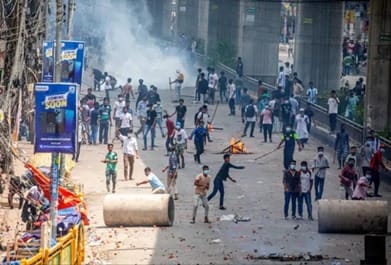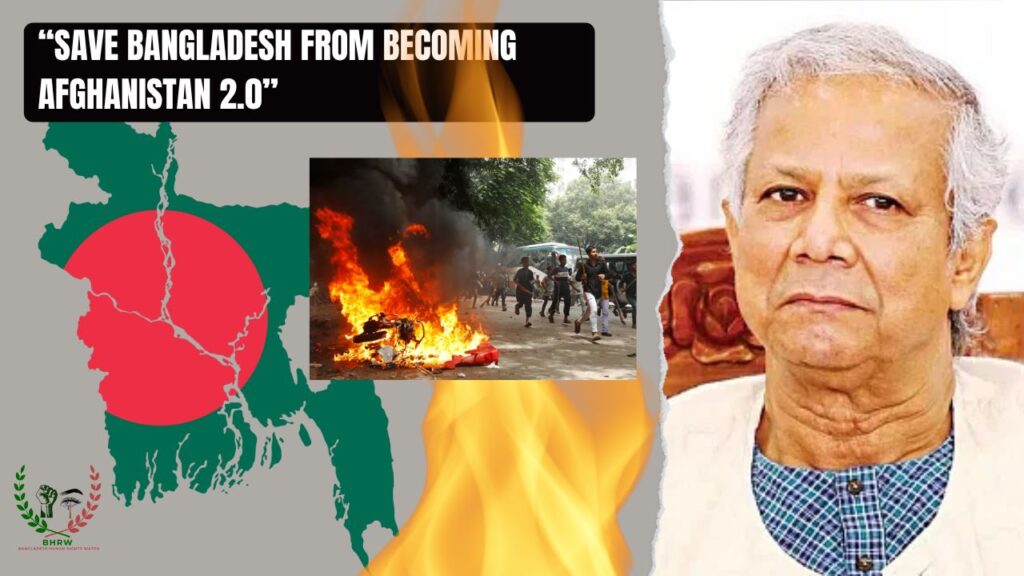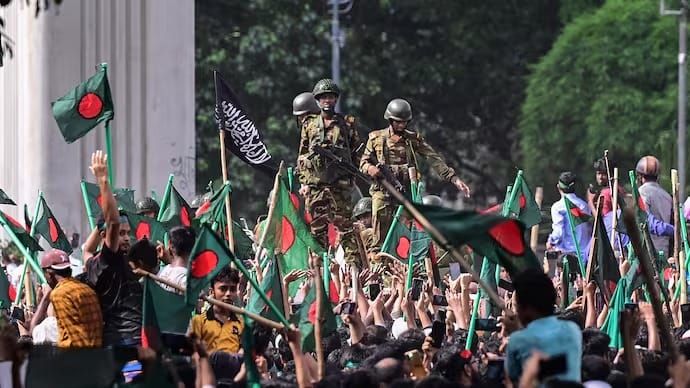Preventing Bangladesh from Turning into Afghanistan: A Call for Stability
It has reached a stage of worry that, the navigational waters of 2024, would land Bangladesh into the trajectory of instability as witnessed in recent history of Afghanistan. Fact is

It has reached a stage of worry that, the navigational waters of 2024, would land Bangladesh into the trajectory of instability as witnessed in recent history of Afghanistan. Fact is that flare-up protests and violence, mainly on account of political discontent and social grievances, have wreaked havoc on the year. Bangladesh and Afghanistan are being pitted against each other within the historical parallels, thus accentuating how this South Asian nation which for decades now has been advancing in economic development and social progress needs to settle the challenges that may unsettle it.
The new year 2024 starts with widespread protests within a country that still finds itself accountable to allegations of government corruption and authoritarian practices. Opposition parties gathered their followers, and the civil society movement planned street-level protest rallies in major cities like Dhaka and Chattogram. Most of the protests began as peaceful protests, but many went out of hand and even into clashes with the police. Police fired tear gas and rubber bullets, leaving scores of protesters injured, and hundreds were arrested while protesting. It is incidents of this kind that have fueled fears that political repression might even further enflame social tensions and create an environment that breeds the very extremism the state tries to curb.
Parallel to the political chaos, there has also been a sharp increase in violence against minority communities. The religious and ethnic minorities report experiencing a surge in targeted attacks, which include vandalism of places of worship and attacks on individuals. Such incidents have added a sense of fear into many within the minority population, similar to sectarian violence that has wracked other regions. The human rights bodies have referred to the fact that this growing intolerance could establish a fertile ground for radical ideologies to take root as they had done in Afghanistan.
The economic landscape of Bangladesh further plays an important role in forming societal dynamics. Although the garment industry has been of significant importance in the growth and development of the economy, the economic forces of globalisation and inner inflation put much pressure on livelihoods. For many workers, job insecurity exists, and cost of living has shot up drastically, evoking reactions of widespread discontent. Under such economic stresses, people may become more vulnerable to extremist narratives promising solutions to their dilemmas. This economic vulnerability echoes socio-economic factors that have been at the heart of turmoil for decades in countries like Afghanistan.
Polarisation sharpens in 2024 within Bangladesh society; divisions become sharply politicised, ethnicized, and religious. As protest continues, rhetoric escalates between government and opposition camps accusing each other of misdeed. This atmosphere of division destroys social cohesion and alarms the possibilities of violence. International observers have drawn parallels with Afghanistan’s fractious society, where tribal and ethnic affiliations often have precedence over national identity, leading to conflict and fragmentation. The fear is that Bangladesh may follow a similar trajectory without concerted efforts being made to bridge these divides.

With this situation unfolding, the stakes for Bangladesh are extraordinarily high. There is the foreboding presence of rising violence and anarchy threatening to undermine the nation’s instability at a critical juncture. Commentators say the next few months will define the course Bangladesh takes moving forward. A cocktail of political frustration, economic hardship, and social fragmentation can either push the country further into chaos or clear the way toward renewed dialogue and reconciliation. The international community is carefully monitoring the situation because it knows that the turmoil in Bangladesh would not only create a mess for its people but would have wider ramifications for regional security.
The happenings of 2024 have sounded alarm bells across Bangladesh about an eventuality wherein Bangladesh could gradually slide into chaos, just like Afghanistan. The rising political protests, violence against minorities, economic challenges, and social divisions make the future of the nation a rather worrying picture. It remains uncertain what the direction would be as Bangladesh struggles through these multi-dimensioned crisis situations; certainly, its government and people’s collective response will define whether the country can successfully uphold its long-earned momentum or take the route to instability that overshadows it.



